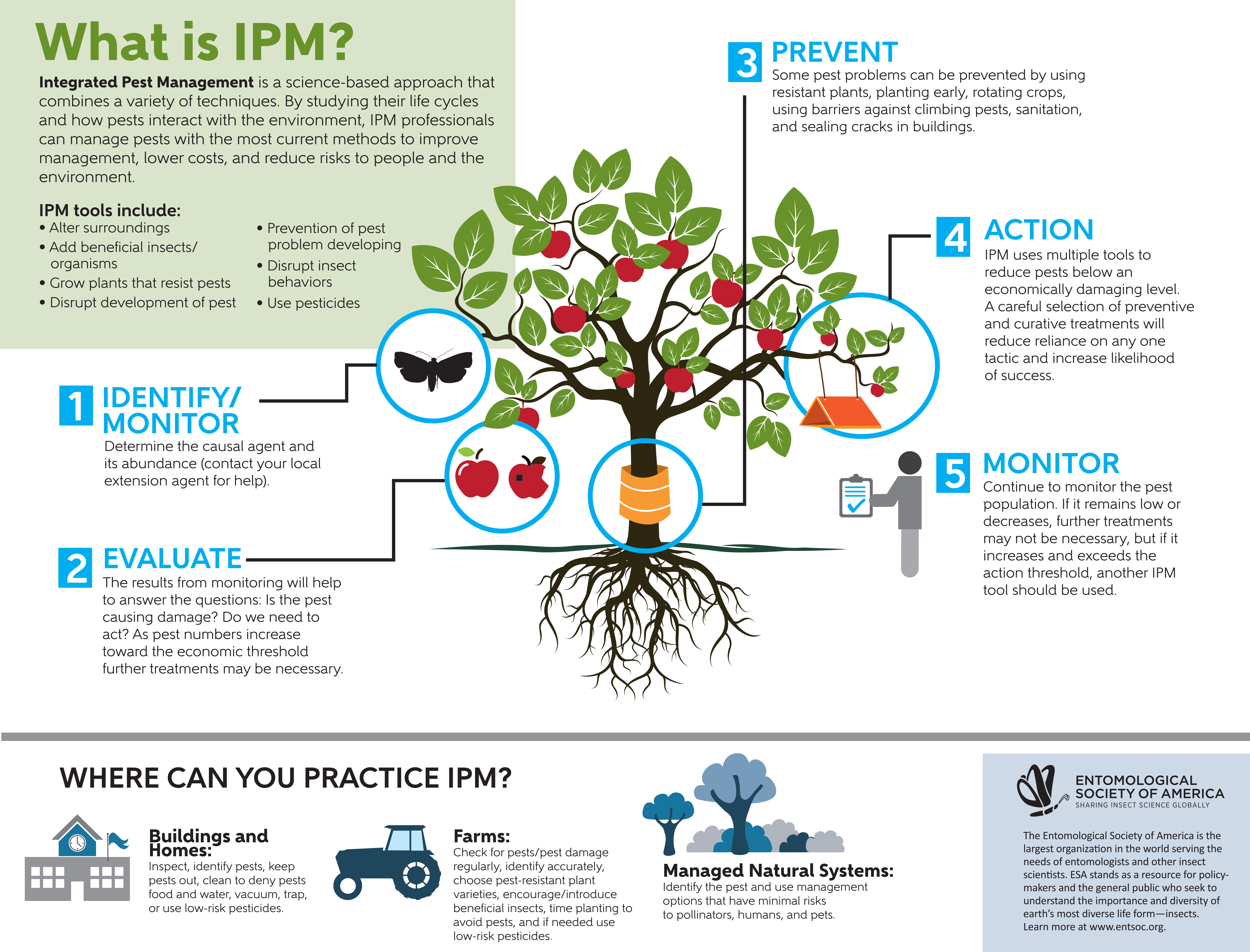The Role Of Bug Control In Food Safety And Security And Hygiene
The Role Of Bug Control In Food Safety And Security And Hygiene
Blog Article
Material Writer-Tonnesen Futtrup
Are you familiar with the concealed dangers that insects posture to the security and health of your food? From rats to insects, these undesirable site visitors can contaminate your active ingredients, surface areas, and storage areas.
This article checks out the crucial duty of insect control in keeping the highest criteria of food security and hygiene. Discover effective techniques and prevention procedures that will certainly aid you shield your organization, customers, and reputation.
Do not let parasites endanger the high quality of your food.
The Effect of Insects on Food Security and Health
In your kitchen area, pests can have a substantial effect on food safety and hygiene. These unwanted guests, such as rodents, bugs, and cockroaches, can infect your food, surface areas, and tools with dangerous microorganisms, viruses, and parasites. They can quickly access your kitchen, cupboards, and also your refrigerator, leaving behind droppings, pee, and hair.
Not only can they spoil your food by chewing through packaging, yet they can also spread out illness like Salmonella , E.coli, and Listeria. Imagine preparing a dish for your family, not aware that the active ingredients you're utilizing are currently infected.
It's crucial to take immediate action to stop and manage parasites in your cooking area. Regular cleansing, correct food storage, and professional pest control actions are necessary to make certain food safety and security and maintain a hygienic setting in your kitchen.
Reliable Bug Control Strategies for the Food Sector
Applying reliable bug control methods is important for maintaining food safety and security and hygiene in the food market. By carrying out these approaches, you can avoid bugs from contaminating the food and guarantee that your products are safe for usage.
One reliable approach is to regularly check and monitor your facility for signs of bug task. This consists of monitoring for droppings, nests, or any kind of damages triggered by pests.
Pest control for rodents 's also important to secure all entry points to avoid insects from going into the facility. Normal cleaning and hygiene are important, as pests are drawn in to food deposit and spills.
Furthermore, correct waste management is essential to avoid the buildup of food waste that can bring in bugs.
Maintaining Health Requirements Via Bug Prevention Procedures
To maintain hygiene standards, you need to routinely implement pest prevention actions. By taking aggressive steps to stop bugs from entering your food facility, you can make certain the safety and sanitation of your premises. Here are some effective pest prevention actions to consider:
- Seal all cracks and crevices: Pests can enter with even the smallest openings. Consistently evaluate and secure any gaps in doors, windows, walls, and floorings to maintain insects out.
- Correct waste monitoring: Get rid of food waste quickly and firmly in secured containers. This will certainly decrease the destination of pests and prevent problems.
- Regular cleansing and sanitizing: Maintaining tidiness in your facility is essential. Consistently clean and sterilize all locations, paying special focus to locations where parasites might hide or breed.
- Implement a monitoring system: Frequently check your facilities for indicators of parasite activity. Set up parasite surveillance tools, such as traps or sensors, to determine and resolve any type of possible issues early on.
Final thought
So bear in mind, when it concerns food safety and security and health, parasite control plays an essential role.
By applying efficient parasite control techniques and safety nets, we can guarantee the highest criteria of tidiness and safety in the food market.
Don't let bugs endanger the top quality of our food; let's stand together and safeguard our wellness and health.
